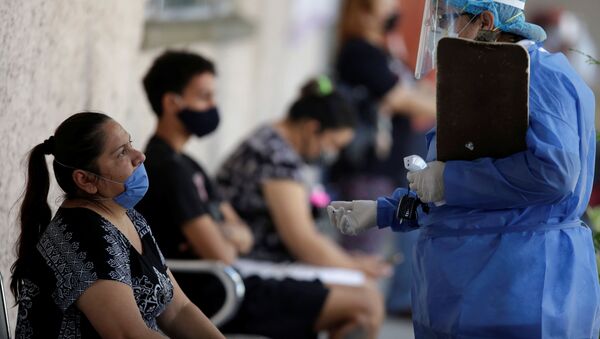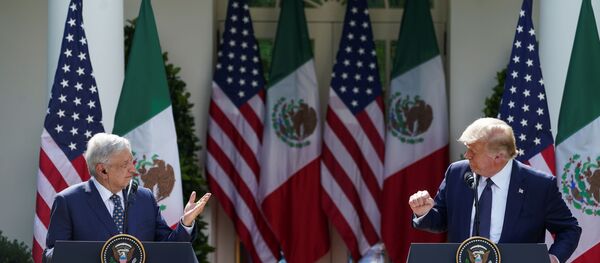MOSCOW, July 14 (Sputnik) - The World Health Organization monitors the progress of the Russian-made coronavirus vaccine on a par with other candidate vaccines from developers around the world and considers Russia a valued participant in the search for a universally available prevention against COVID-19, WHO spokesperson said on Tuesday.
Russia's Sechenov University has completed the first phase of clinical trials of a COVID-19 vaccine, developed by the Gamaleya Institute of Epidemiology and Microbiology. Alexander Lukashev, the director of Sechenov's Institute of Medical Parasitology, Tropical and Vector-Borne Diseases, said that the trials had established the vaccine's safety on human health. The second phase will last until the end of July before registration documents are filed.
"This research is indeed included in the landscape of candidate vaccines compiled and followed by WHO," the spokesperson said.
According to the statement, the development of vaccines is a complex process with a high failure rate. With this in mind, it is hard to predict which one of the vaccine candidates in the works will be the first to complete all three required phases of clinical trials.
"Through the ACT accelerator initiative WHO is working with its partners, Member States and all other stakeholders to develop the principles, framework and mechanisms needed to ensure the fair and equitable allocation of vaccines when they become available as well as treatments and diagnostics. The Russian Federation has been a valued participant in this process," the spokesperson said, when asked whether the agency had discussed the principles of distribution of the future vaccine with Moscow.
According to the WHO protocols, a vaccine has to go through three phases of studies to be approved for large-scale production.
Phase 1 normally involves small-scale studies on up to 100 participants to determine a candidate vaccine's safety and clinical tolerance. Phase 2 includes a larger number of participants, up to 1,000 and more representative with regard to age, ethnicity and other statistically significant factors. This phase pursues to the optimal dose, intervals between doses and the minimum necessary number of doses of a candidate vaccine in a target population.
Phase 3 trials are the largest and can include up to 10,000 participants with the maximum representation of target population categories. A candidate vaccine is ready to move into industrial production if this last phase provides clear and definitive evidence of its safety and efficacy.
WHO's COVID-19 register currently involves 23 candidate vaccines that have already launched trials on humans and another 140 that are yet at the stage of preclinical evaluation.



